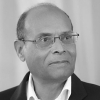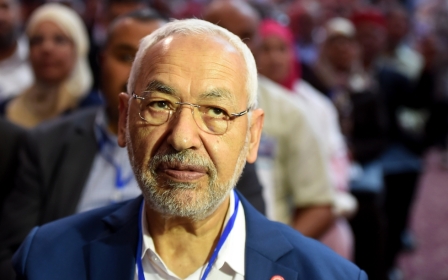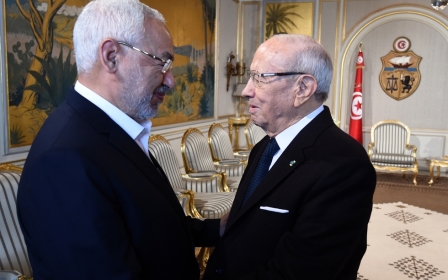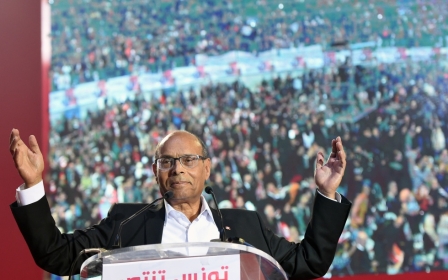Political Islam will go the same way as nationalism and communism
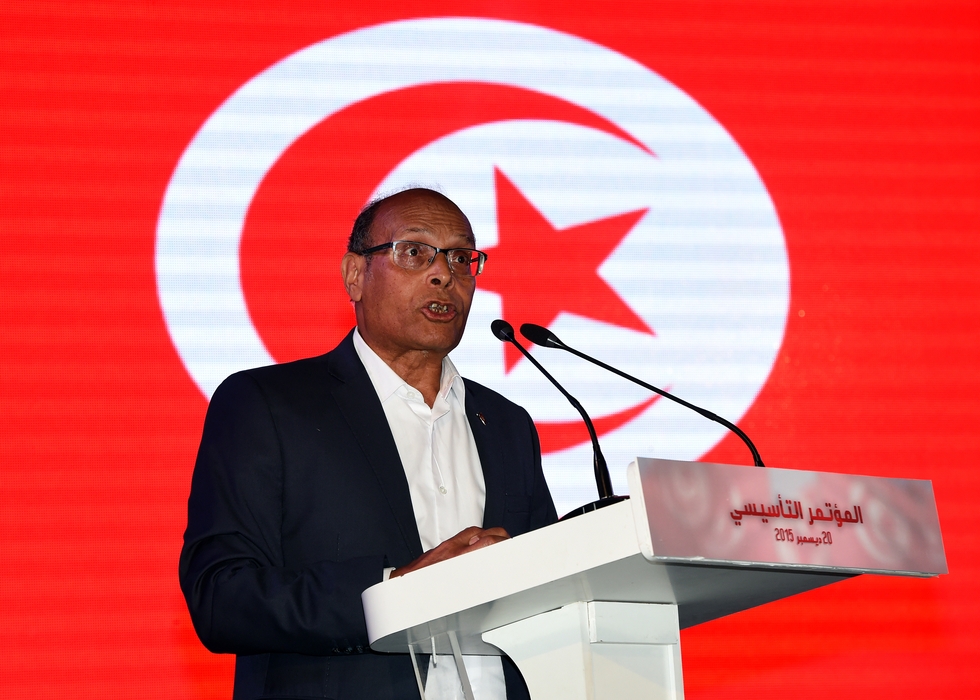
Over the past half century, throughout which time I have been politically active, I have witnessed the rise and decline of three waves of political thought: nationalism, pan-Arabism and communism. Today, I am about to see the decline of a fourth wave, Islamism, after witnessing its launch in the early 1970s and reaching its peak in the late 1990s.
Some might argue the contrary, pointing to the increasing numbers of bearded men and veiled women visible in streets all over the world. They'd point to news reporting the actions of armed religious groups. Or direct my attention to the Islamic resistance Hamas, charities helping the poor, the uncorrupt ruling party in Turkey, or the Muslim Brotherhood's standing up to the Egyptian dictatorship.
I am not disputing any of that. But many will remember that when we were young in the 1970s, the Soviet Union was seen as a power that will stay for the next thousand years. That communism will conquer the world and take hold of the future, leaving all other ideologies in the dustbin of history. Some intellectuals might remember the days when you couldn't appear as politically intelligent or ethical if you weren't Marxist or at least trying to be.
Who would forget the fashion of miniskirts for women or the long hair and leftist beards for men, invading all cities of the world? Or the spread of communist armed movements in Europe, Latin America and reaching even Japan?
All of this collapsed like cardboard, albeit gradually, but not many people foresaw it. That's exactly what is happening today with regards to the Islamist current.
But before going further, let me note that I am not talking about Islam: the religion of our fathers and forefathers, the backbone of this nation, the spiritual relationship between Muslims and the Creator, the cultural relationship that binds the faith with its followers.
Also, I am not talking about preaching Islam: the education necessary to strengthen morality, which the great Prophet came to spread among people. What I am referring to is the wave of Islamic political movements – of all variations – that has made Islam its reference and its banner for mobilising people and reaching power.
Like other political currents, Islamism expanded as a result of society's wish to solve all or some of its problems after trying other alternatives. Add to it a sense of optimism with honest faith that society has finally found "the solution": the key theory to understanding all problems and a practical guide to solve them.
But as movements have their climax, they too eventually decline. After their trial period, societies ask awkward questions: Have you fulfilled all of your promises? Did you live up to the high hopes that were placed on you? In the end, what did you achieve?
Unfortunately, the norm has been the failure of those movements in the most difficult of trials. They are tested by a tough reality that has an astonishing ability to resist change and alter paths, leading to people's disparity before looking for a new current.
Nationalist states have failed by becoming oppressive and corrupt regimes, which forgot that that there is no meaning in nationalism without the citizens of the nation. They have also failed by showing that independence – which is necessary – does not automatically lead to freedom and prosperity. That the people most of the time replace a foreign occupation with a domestic one.
Pan-Arabist states have failed, not only in unifying the peoples of the (Arab) nation but by tearing apart the ill-fated parts that were under their control. So you can forget about liberating Palestine. Today, we are witnessing the fall to the absolute abyss when a regime destroys its people and nation just to hold on to the ruler's chair - floating on a sea made from the blood of Syrians.
Communism failed when the Chinese Communist Party has become the protector of capitalism. When the communist parties in Italy and France lost their presence after initially being the nemesis of conservative regimes in those two countries. And I'm not even mentioning the former Soviet Union and the states of the Eastern Bloc.
It would be arrogant to say that the Islamist political current would be immune from the laws of rise and decline. The symptoms of failure are now evident. They are threefold:
The ruling political Islamists
In most cases, they use an ideological cover for a tyranny that is no less repressive and corrupt than any other system of government that rules in the name of nationalism, pan-Arabism or communism.
The armed Islamist opposition
If we exclude legitimate movements of resistance, such as Hamas in Gaza, Lebanon's Hezbollah up to 2006, or the groups that are fighting the Syrian tyrant, we can say that the rest of the armed Islamist groups constitute the biggest contemporary disaster that the Arab and Muslim nations - and even Islam – are facing.
In their absurd adventures abroad, such groups have not only succeeded in giving the West an excuse to impose a military presence on our land, but they have also poisoned the lives of tens of millions of Muslims living in Europe and America. Thanks to them, the whole world regard us as a nation that has nothing to add other than breeding terrorism. We are perceived as a threat to the rest of the world even though 90 percent of the victims of such groups are Arabs and Muslims.
In addition to their infighting, sectarian clashes, and bloodshed – which defies the teachings of Islam - such groups have given authoritarian regimes the greatest gift. They've allowed these regimes to carry the "war on terror" banner while having the support of the West. These groups have helped bury the Arab Spring, as they realised that peaceful popular uprisings are the real alternative to oppression and not them.
Political Islamists' civil opposition
It is ironic that we see today that the branches of political Islamism, whether armed or civil, are effectively supporting the ancient regime, albeit in their own different ways. Instead of making alliances with the forces that have projects for the future, we see political Islamists in more than one Arab state becoming a partner with the establishment that the people of the Arab Spring had revolted against. After failing to replace the old order, they have decided to join it.
Here lies another great gift to the ancient regime, which no longer sees these movements as a threat as it wins them over in exchange of a symbolic participation in power.
We need to pay close attention to the significance of abandoning the Islamic name in such parties. This is the first phase. The second would be their abandoning of the Islamic reference itself. Communist parties have previously made similar moves: with the name change came disowning the dictatorship of the proletariat. They are now dressed in the garment of democracy, while adopting a rosy form of socialism that does not frighten anyone. But these moves do not prevent decline but rather speed it up.
In the end, most of these Islamist parties would mutate into right-wing parties looking for a place in power, even if it’s at the price of being in harmony with foreign dictates or corrupt - or uncorrupt – capital. In other words, by all the classical, political Machiavellian means. It's the final phase of their fall. These parties have failed to "moralise" politics, as they have been claiming is their aim for a long time. Instead, politics have managed to "Machiavellise" Islamist parties.
It would be wrong to assume that I wish readers to give up belief in all political ideologies, as a bid to promote my belief – that is democracy. I think that democracy will not be exempt from the laws of rise and decline that applies to other political ideas, and for the same reasons - despite my belief that it is the least bad solution and despite my holding on to it.
There is a big gap between the shining theory of "by the people for the people" and the sad reality of corrupt money taking charge of the media and politicians. People are easily misled: they had elected Hitler before and tomorrow may vote for Trump. We see the example of the new president of the Philippines, who wants to throw human rights in the bin.
It would be a bigger mistake to assume that I am settling personal scores as a result of the failure of previous alliances I had with political Islamists. This was a necessity in the era that Tunisia went through and has now ended indefinitely.
I am neither totally pessimistic nor unreservedly optimistic, but instead somewhere in the middle. Pessimists do not know that the power of good never stops while optimists underestimate the will of evil powers. I know that holding onto hope does spare you hardship but I also never surrender to illusions even in times of victory.
If I'm permitted to remind readers that I am a medical doctor, and hence I view all ideologies as prescriptions designed to cure societies of their ills. A doctor does not remain in despair for long if a remedy has failed. Nor would a doctor take pleasure in or make false accusations against his peers should they fail. It is suffice that he learns from his experiments so that he can continue his research – most importantly for the lives of people.
Humanity will continue trying all sorts of ideologies. This means that the future will hold unimaginable new political waves. Some might not be as successful as others before them. But that process will only stop with the end of humanity itself.
I don't know if liberalism will follow the natural course of other ideologies. But what I am sure of is that the demands for freedom, dignity and justice will never die.
- Moncef Marzouki was the president of Tunisia from 2011 to 2014. A neurologist by profession, he spent many years defending human rights during the dictatorship of former Tunisian president Zine El Abidine Ben Ali, which was toppled by the Arab Spring uprising. He founded the Congress for the Republic party but in 2015 he launched a new political party named Al-Irada (The Will). You can follow him on Twitter @Moncef_Marzouki . A longer version of this article originally appeared in Arabic at Aljazeera.net.
The views expressed in this article belong to the author and do not necessarily reflect the editorial policy of Middle East Eye.
Photo: Former Tunisian president Moncef Marzouki delivers a speech during a rally to launch his new political party Al-Irada (the will) in the capital Tunis on 20 December, 2015 (AFP).
This article is available in French on Middle East Eye French edition.
New MEE newsletter: Jerusalem Dispatch
Sign up to get the latest insights and analysis on Israel-Palestine, alongside Turkey Unpacked and other MEE newsletters
Middle East Eye delivers independent and unrivalled coverage and analysis of the Middle East, North Africa and beyond. To learn more about republishing this content and the associated fees, please fill out this form. More about MEE can be found here.


